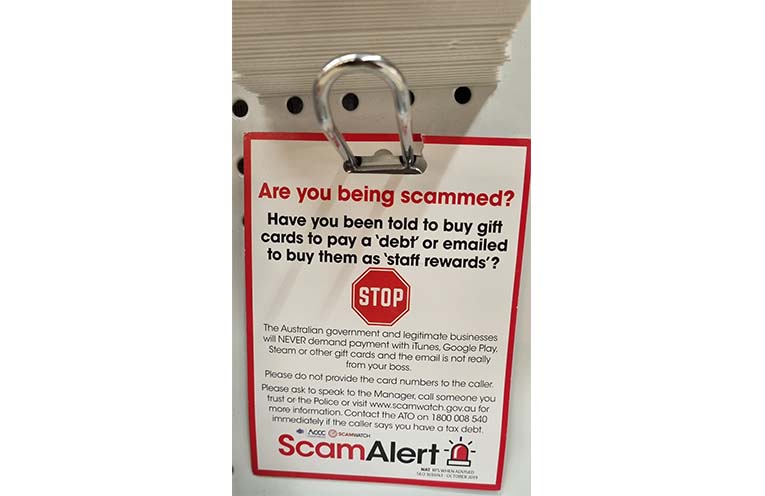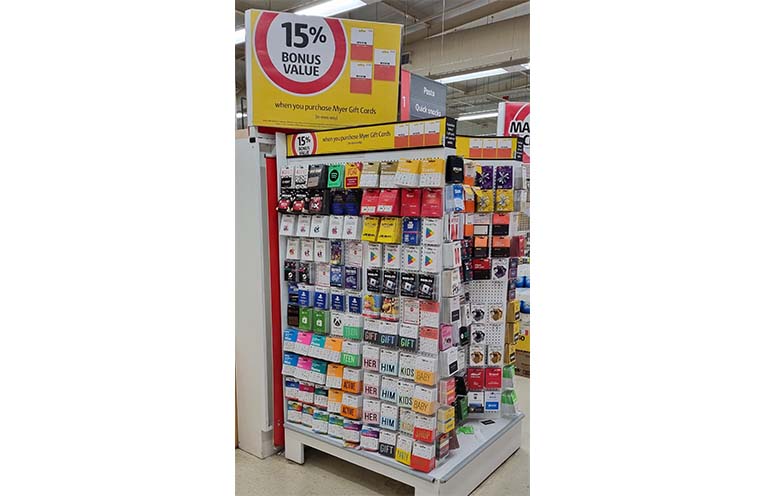
SCAMS come in many forms, and the latest to be spotlighted by major supermarkets is the ‘gift card scam’, prompting active awareness campaigns by Coles and Woolworths.
Gift card scams involve an initial ‘phishing’ stage, in which victims receive a vaguely worded, yet urgently-toned email, ‘alerting’ them to pay off a debt by purchasing gift cards and handing over their activation codes.
Targets are instructed to purchase a relatively high dollar-value in gift cards (often hundreds of dollars) from a local supermarket, or to visit several locations to buy smaller quantities.
The simple truth is that gift cards are not a form of legal currency, and can never be used to pay off a debt.
No legitimate government nor corporate organisation will ever ask nor accept gift cards as a debt-payment option.
Coles’ and Woolworths’ official websites contain very clear and specific information on how to easily detect and avoid all manner of scams, complete with visual examples.
“Coles advises customers to be aware of text messages, phone calls, websites, competitions and other unsolicited contact that use the Coles brand without Coles’ permission or which promote Coles Gift Cards or other gift cards in an attempt to appear legitimate,” said a Coles spokesperson.
“Coles will never request personal or banking details in unsolicited communications and legitimate businesses or government agencies will never request payment in gift cards.”
Other scam tactics include, but are not limited to: unsolicited customer satisfaction surveys that promise a reward at completion; sharing/liking a Facebook post in exchange for a gift card/voucher; calling a specific phone number and providing personal information; clicking on an email that links with a malicious website; requesting access to your computer when you have not reported an issue.
Everyone should be intelligently vigilant, and reject any ‘prize’, offer or survey that they did not explicitly request, and always verify the sender of any suspicious or unsolicited correspondence via an alternate method.
For example, if contacted via email, call them back; if messaged, check the official website; and never use links within the message itself.
Just Googling it is not enough, as Google takes no responsibility for any search results, and scammers can manipulate their content to appear at the top of some Google searches, thus preying on unsuspecting internet users’ innate desire to use the first result.
Remaining silent is only making the scammers’ job easier, so if you have a concern, you should tell someone, and ask for help.
By Thomas O’KEEFE

